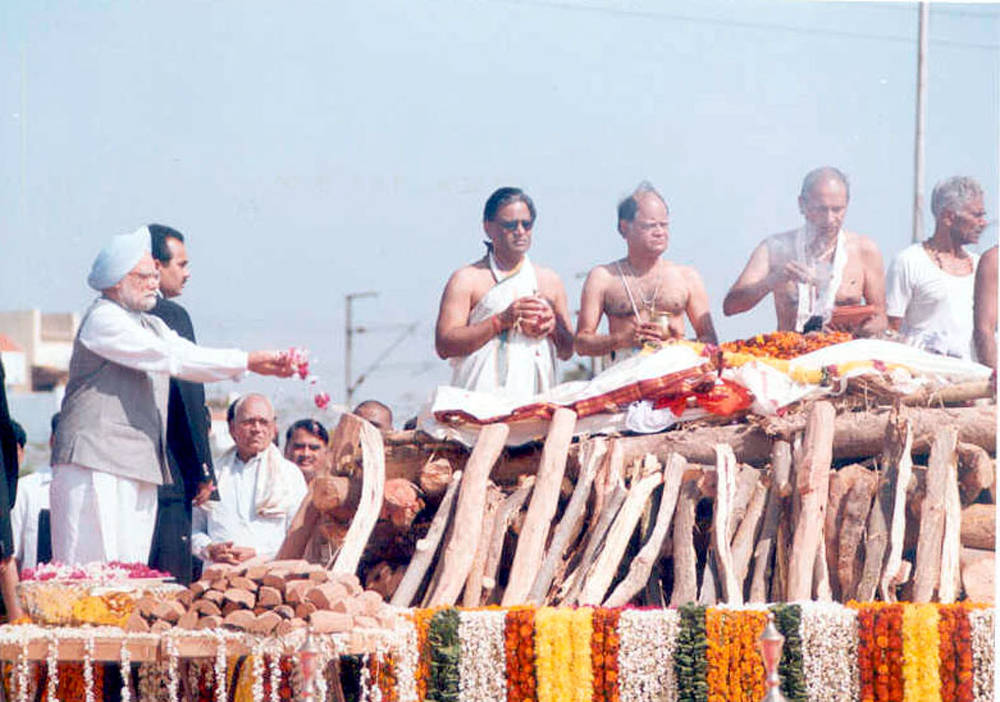[Photograph courtesy PIB]
I always imagined PV Narasimha Rao as a diminutive, corrupt and manipulative creature who got into power because he kowtowed to the Gandhis, India’s so called first family. Like many people of my generation, I always thought Dr. Manmohan Singh, who succeeded him, as the architect of India’s economic reforms.
But because political history interests me, I found myself drawn to Vinay Sitapati’s book on him—Half Lion: How PV Narasimha Rao Transformed India. Quite honestly, I was expecting a hagiography, albeit with some interesting gossip that I may file into my notebooks.
As I got into the book though, Sitapati clinically demolished all that I had assumed. That is why my original intent was to write a longish essay around the book and why I got it wrong. I thought I’d round it off with an audio conversation that lasts no longer than 15 minutes with Sitapati.
But following an initial conversation with him, I was compelled to concluded it would do no justice to the former prime minister, Sitapati’s meticulous research (11,100 footnotes to be precise), and all of what he has left unsaid on what it takes to be a leader when the odds are stacked against you.
To understand that, consider the headlines that dominated newspapers from the days that can be described as nothing short of crazy.
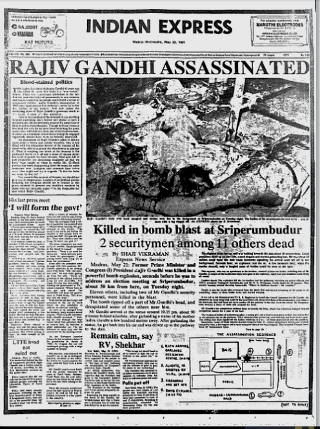
[India and the world were stunned to wake up to read headlines that read Rajiv Gandhi was assassinated while on the campaign trail]
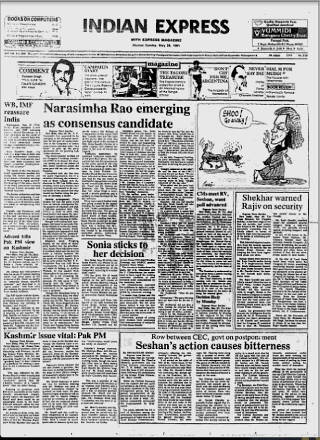
[By May 25, After Sonia Gandhi declined all overtures to take over, PV Narasimha Rao started to emerge as the consensus candidate. He was seen as a weak man with no authority]
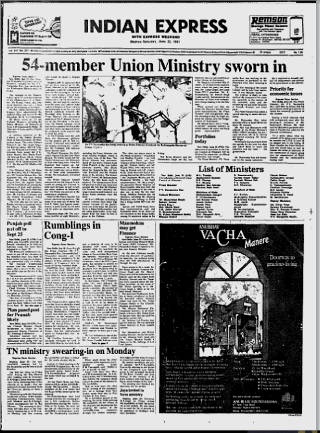
[On June 21, Narasimha Rao was sworn in as Prime Minister of India. The only man who until date holds the distinction of having served in the post after having been a foot soldier at the grass roots, a party functionary, a state chief minister and a central minister. Even the incumbent PM Narendra Modi does not have such a record]
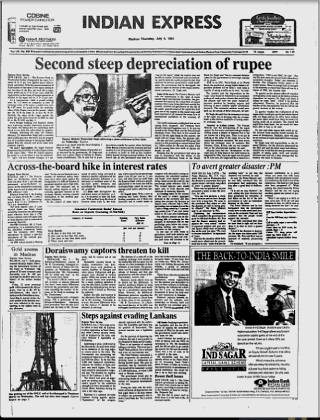
[By July 3, he had begun to deploy Manmohan Singh as a gladiator would use a shield. It was political genius at its best]
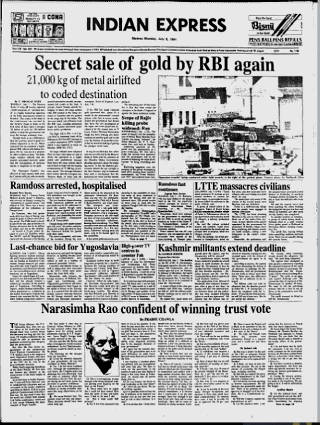
[On July 8 1991, a gold-crazy nation woke up stunned and ashamed to news that their country’s gold had been pledged because India had no money left to pay for imports]
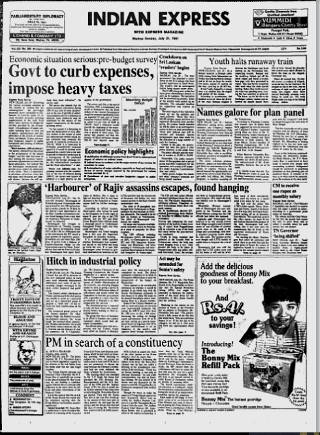
[In the background, Narasimha Rao was orchestrating tough moves. He was prepping the nation for things they had never seen before]
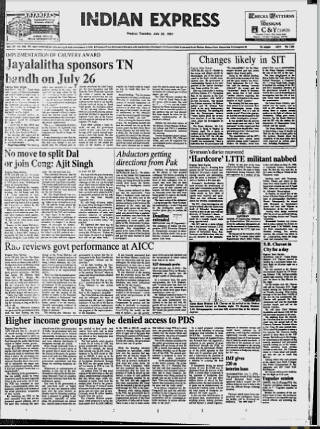
[It was the kind of India any other man would have crumbled under. Perhaps, only Jawaharlal Nehru had it in him to deal with chaos of this kind]
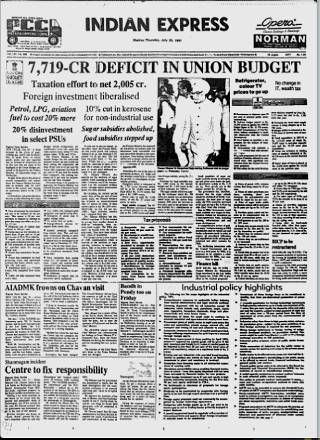
[Nobody knew what hit them on July 24 1991 when the budget was announced at 5:30 pm in the evening. Rao shrugged his shoulders and pointed squarely at Manmohan Singh. He claimed the man is a technocrat who understands finance and to ask questions of him. Fact is, Rao was the real architect]
Instead, I thought it better to engage with Sitapati in an uninterrupted conversation on Rao, who for all his frailties, will perhaps go down as one of the finest leaders not just India, but the world has ever seen. Much of what appears in this conversation is not part of the narrative in the book.
This conversation contains all of what Sitapati picked up during the course of his research, the traits that every leader ought to possess, whatever domain they be in. So as much as this book is about contemporary India, it is also about leadership at its best. It is also about hypocrisy, sycophancy, loneliness, tragedy, and above all else, hope. To that extent, this book is not intended for those interested in politics or history, but for everybody interested in leadership, entrepreneurship, and the narrative that is contemporary India.
I felt compelled to egg Sitapati to compare Narasimha Rao and the incumbent prime minister Narendra Modi. Not so much on their ideological positions, but on their leadership styles, and who will history paint as a larger-than-life character. This may well be a controversial conversation. But allow me to assure you, it will be time well spent. I had a great time listening in to a young man who has all of his bases covered.
And there could be no better time to have this conversation than now.
- On June 21, 1991 PV Narasimha Rao took over as Prime Minister after Indians were smarting from one of their worst humiliations. The country had run out of money. It had only $1.2 billion in reserves—just about enough to meet three weeks of imports. Monies were needed desperately and the Indian government pledged 67 tonnes of gold to the Bank of England and the Union Bank of Switzerland to raise $605 million.
- And then exactly at 11:30 am on July 24, most Indians couldn’t believe their ears or eyes as reports poured out of radio and television sets that the infamous industrial licensing policy which had gotten India to its knees had been scrapped. Everybody knew it had to do be done—including Mrs. Indira Gandhi who had the mandate. But nobody had the guts.
- Later that evening, Dr Manmohan Singh, took to the podium at the Rajya Sabha and astonished Indians listened to the reforms he unleashed. It was the beginning of what is now called the “India Shining” campaign. Everybody loves a good story, don’t they?
The stock markets celebrated. The political classes were furious. The middle and poorer classes didn’t know what was happening. I was in college, studying biochemistry. The only thing I knew was something big was happening. What it would do to me and how it would change my life, I couldn’t comprehend then.
PV Narasimha Rao was someplace, orchestrating it all.
The implications of what he did will impact our children as well.
To understand what it took to be that man, listen in to Vinay Sitapati in conversation with me.
May I also take this opportunity to ask of you that you consider this conversation as a curtain raiser in a series that leads up to Independence Day on August 15. At the helm as Guest Editor, we have Arun Maira, former member of the Planning Commission of India.
Among other things, he will reflect on the issues facing our country, and engage in a Google HangOut with Sundeep Waslekar, President of the Strategic Foresight Group, Nachiket Mor, India Country Director, Bill & Melinda Gates Foundation and Indrajit Gupta, co-founder at Founding Fuel.
Do stay tuned in for updates on a lot many provocative essays and conversations in the days to come.
Listen to a 2 minute introduction to the interview with Vinay Sitapati. The full interview and an exclusive extract from the book are now live.
